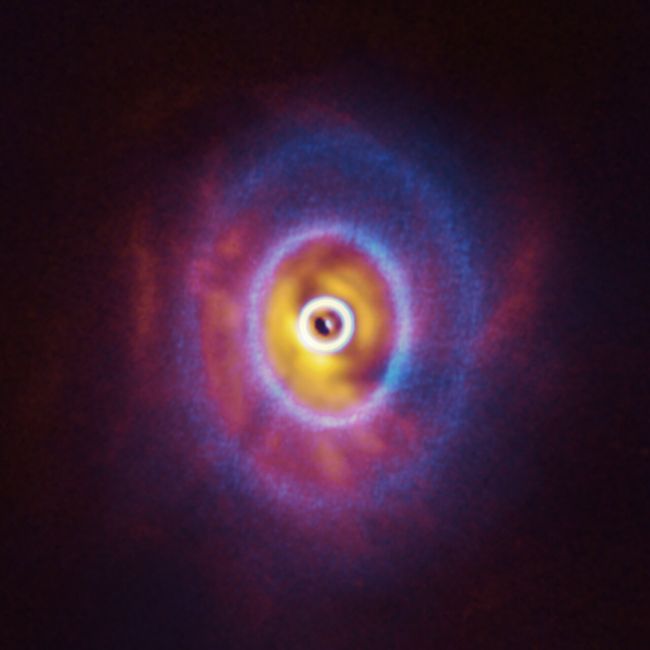Scientists spot a triple-star system shredding its planet-forming disk in a cosmic first
By Chelsea Gohd 6 hours ago
Groups of stars can tear their planet-forming disk to shreds, leaving behind warped, misaligned rings, scientists find in a breakthrough study.
Solar systems like ours generally form with their planets all orbiting in the same, flat plane. But, as an international team of scientists has found in a new study, this isn't always the case.
After 11 years of studying GW Orionis, a young triple star system 1,300 light-years away with a circumstellar disk (a planet-forming, ring-shaped disk made up of gas, dust planetesimals, asteroids and more), the team found the first direct evidence that groups of stars can actually tear apart their disks. This work reveals a disk that isn't flat at all and is, instead, misaligned and broken.

This superimposed image of of the GW Orionis star system shows images from the ALMA radio
(in blue) overlayed on the ESO Very Large Telescope's SPHERE instrument's telescope view, which
shows the shadow of the system's innermost ring. (Image credit: ESO/Exeter/Kraus et al., ALMA
(ESO/NAOJ/NRAO))
"There have been a number of theoretical studies on disk-tearing effects, but this is the first direct evidence of effect occurring in a planet-forming disk," study co-author Alison Young of the Universities of Exeter and Leicester in England, told Space.com in an email. "This demonstrates that it is possible for such disks to be warped and broken and raises the possibility that planets could form on highly inclined orbits around multiple star systems."
More:
https://www.space.com/gw-orionis-triple-star-system-tears-apart-disk.html?utm_source=notification
